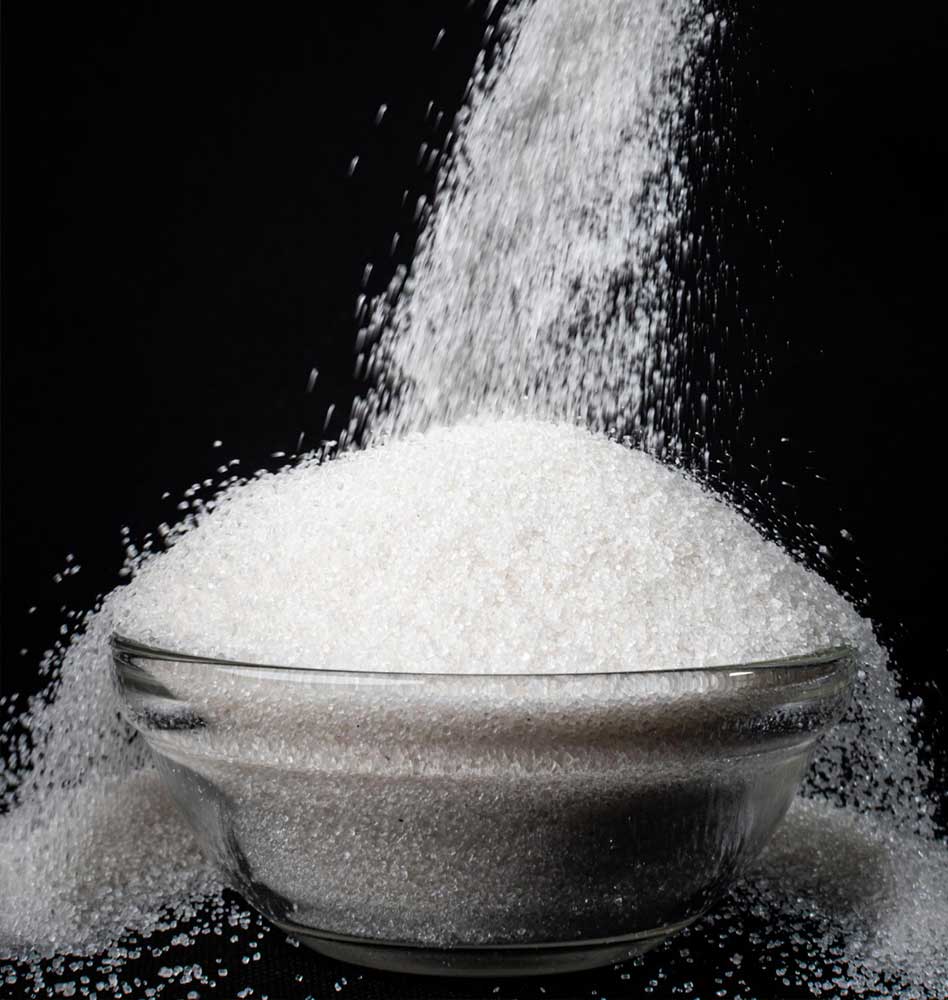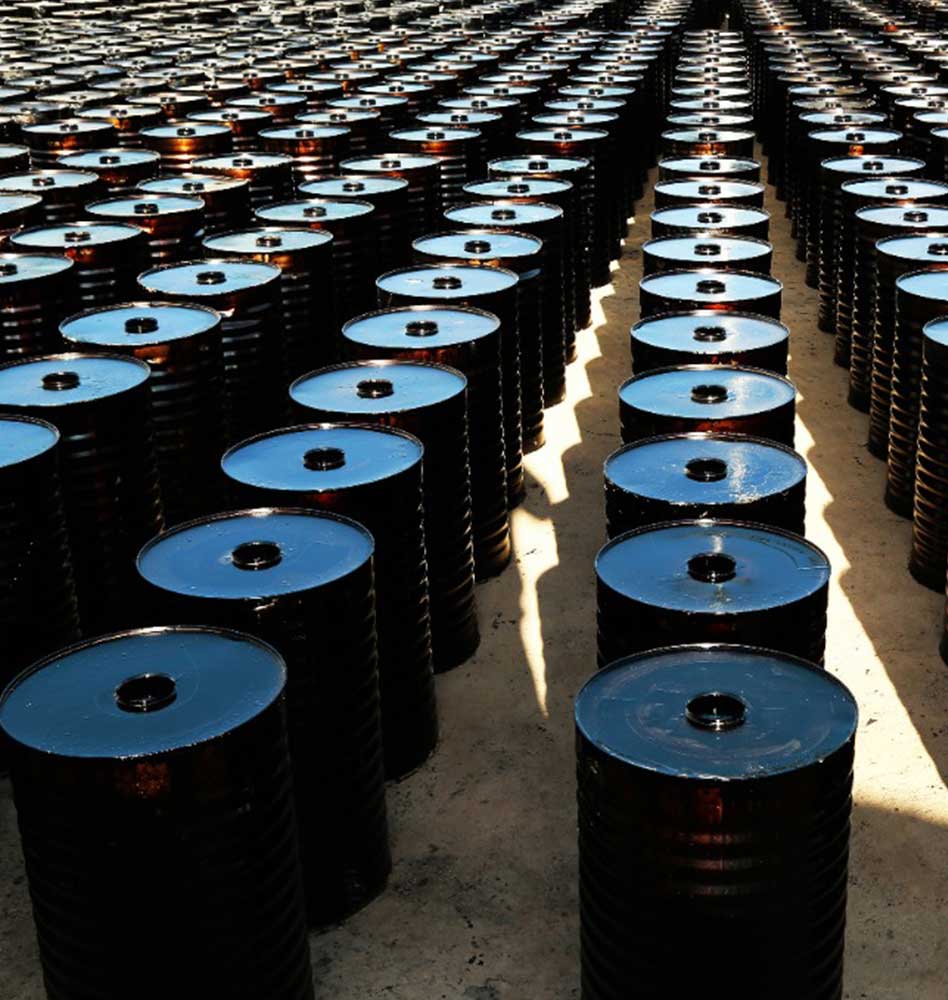Bulk & Commodities
| Sr no | Products | CAS |
|---|---|---|
| 1 | Cumene | 98-82-8 |
| 2 | Phenol | 108-95-2 |
| 3 | Para Tertiary Butyl Phenol (PTBP) | 98-54-4 |
| 4 | Alpha-Methylstyrene (AMS) | 127-06-0 |
| 5 | Meta Xylene | 108-38-3 |
| 6 | Meta Cresol | 1108-39-4 |
| 7 | Melamine | 108-78-1 |
AGRO CHEMICALS & INTERMEDIATES
| Sr no | Products | CAS |
|---|---|---|
| 1 | Azoxystrobin | 131860-33-8 |
| 2 | Isoproturon | 34123-59-6 |
| 3 | Kresoxim-methy | 143390-89-0 |
| 4 | Trifloxystrobin | 141517-21-7 |
| 5 | 1-(4-Chlorophenyl)-4,4-dimethyl-3-pentanone | 66346-01-8 |
| 6 | 1,3-Cyclohexanedione | 504-02-9 |
| 7 | 2,4-Dichloro-3,5-dinitrobenzotrifluoride | 29091-09-6 |
| 8 | 2',4'-Dichlorovalerophenone | 61023-66-3 |
| 9 | 5-Chloro-1-indanone | 42348-86-7 |
| 10 | Cyclopropanecarbonyl Chloride | 4023-34-1 |
| 11 | DIPA | 24544-04-5 |
| 12 | Ethyl D-4-(methylsulfinophenyl) serinate | 36983-12-7 |
| 13 | Methyl (R)-(+)-2-(4-hydroxyphenoxy) propanoate | 96562-58-2 |
| 14 | Potassium Fluoride | 7789-23-3 |
| 15 | Triazinone | 154702-15-5 |
Fine & Speciality
| Sr no | Products | CAS |
|---|---|---|
| 1 | Metribuzine | 288-88-0 |
| 2 | 2-Methyl Resorcinol | 608-25-3 |
| 3 | 2-Nitropropane | 79-46-9 |
| 4 | Acetoxime | 127-06-0 |
| 5 | Bisphenol AF | 1478-61-1 |
| 6 | Chloro Sulfonyl Isocyanate | 1189-71-5 |
| 7 | DIAD | 2446-83-5 |
| 8 | DIBOC | 24424-99-5 |
| 9 | HFIP | 920-66-1 |
| 10 | Potassium Fluoride | 7789-23-3 |
| 11 | Pyridine Sulfur Trioxide Complex | 26412-87-3 |
| 12 | Pyridinium Tribromide | 39416-48-3 |
| 13 | Sodium | 2926-29-6 |
| 14 | Thiourea dioxide | 1758-73-2 |
| 15 | Isoamylene | 513-35-9 |
API & Intermediates
| Sr no | Products | CAS |
|---|---|---|
| 1 | Griseofulvin | 126-07-8 |
| 2 | Isoflurane | 26675-46-7 |
| 3 | 3-OH | 54639-48-4 |
| 4 | Cefuroxime Acid | 55268-75-2 |
| 5 | HFMOP | 13171-18-1 |
| 6 | 2,2,2-Trifluoroethano | 75-89-8 |
| 7 | Resorcinol | 108-46-3 |
Surfactants & Quaternary Ammonium Compounds
| Sr no | Products | CAS |
|---|---|---|
| 1 | Cetyl Trimethyl Ammonium Chloride 30% / 50% (CTAC 30/50) | 112-02-7 |
| 2 | Benzalkonium Chloride 50% /80% (BKC 50/80) | 63449-41-2 |
| 3 | Didecyl Dimethyl Ammonium Chloride 80% | 7173-51-5 |
| 4 | Di Hydrogenated Tallow Dimethyl Ammonium Chloride | 61789-80-8 |
| 5 | Lauryl Amine Oxide – ( LAO ) | 1643-20-5 |
| 6 | Acid Thickener | 25307-17-9 |
| 7 | Lauryl Trimethyl Ammonium Chloride (LTAC 30 /50) | 112-00-5 |
| 8 | Cocamido Propyl Betaine- CAPB | 61789-40-0 |
| 9 | Coco di ethanol amide - CDEA | 68603-42-9 |
| 10 | COCO BETAIN | 68424-94-2 |
| 11 | OLEYL AMINE ETHOXYLATE 2 MOL | 26635-93-8 |
| 12 | CABS (Calcium Alkyl Benzene Sulfonate) | 26264-06-2 |
| 13 | Sodium | 2926-29-6 |
| 14 | DOSS (Dioctyl Sodium sulfosuccinate) | 577-11-7 |
| 15 | QUAT 2C 75 | 61789-77-3 |
| 16 | Oleyl Trimethyl Ammonium Chloride | 10450-69-8 |
| 17 | Tallow Trimethyl Ammonium Chloride | 8030-78-2 |
R&D Molecules
New product development projects are more crucial while competing with competitors in global market. Project secrecy is top priority of any organization. We deal in technical grade molecules in bucket volumes keeping priority of R&D.
We have wide experience of sourcing technical grade molecules in small volumes desired by customers. R&D centres frequently using LR grades for research. The major difference between two is purity. LR grades are much more fine compare to technical grade which impacting on results while using in small R&D batches. We suggest here to use, technical grades for inhouse R&D to get actual results in piloting & commercialisation of final product.
Bitumen
- Adhesion: Bitumen is capable of adhering to a solid surface in a fluid state depending on the type of the surface. The presence of water on the surface prevents adhesion.
- Resistance to Water: Bitumen is known as a water proof substance. Under some conditions water may be absorbed by adding slight amount of inorganic salts in the bitumen or filler therein.
- Hardness: To measure the hardness of bitumen, the penetration test is carried out, which measures the depth of penetration a weighted needle in tenths of mm. of bitumen after a given time, at a certain temperature (generally a weight of 100 gm is applied for 5 sec at a temperature of 77 °F). The penetration is a measure of hardness. Typical results are 10 for hard coating asphalt, 15 to 40 for roofing asphalt and up to 100 or more for water proofing bitumen.
- Viscosity and Flow:The viscous or flow properties of bitumen are of importance both at high temperature during processing and application and at low temperature to which bitumen is subjected during service. The flow properties of bitumen vary considerably by temperature and stress conditions. Deterioration, or loss of the desirable properties of bitumen, takes the form of hardening which, consequently, decrease the adhesive and flow percentage and an increase in the softening point temperature and coefficient of thermal expansion.
- Softening point: Softening point is the temperature at which a steel ball be thrown at a known distance through the bitumen when the test subject is heated at a known rate. Usually the test consist of a 3.8-cm-diameter steel ball, weighted 3.5 gm, which is allowed to sink through a 5.8 cm in diameter, 1.4 cm in thick disk of bitumen in a brass ring. The whole subject is heated at a rate of 9 °F per min. Typical values would be 240 °F for coating grade asphalts, 140 °F to 220 °F for roofing asphalt and down to 115 °F for bituminous water proofing material.
- Ductility: Ductility test is conducted to determine the amount at which bitumen will stretch at temperature below its softening point. A briquette having a cross sectional area of 1 in 2 is placed in a tester at 77 °F. Ductility values ranges from 0 to over 150 depending on the type of bitumen.







